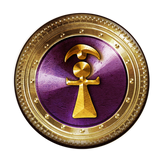top of page

The Factions

GREECE

For most of its ancient history, Greece was not nation. Rather, Greece was a group of city states fighting one another for dominance, money and prestige. Yet despite their small size, lack of resources and utter disunity, Greece somehow became the cradle of modern western civilization; After all, it is the birthplace of democracy, the home of art and philosophy, and the west’s vanguard against the Persian empire.
As the Greek cities of Athens and Sparta fought for hundreds of years to control and unite Greece, it was Philip II of Macedon who finally managed to do so in the 4th century BC. After Philip’s assassination, his son, Alexander the Great took control of Greece and launched an attack against the Persian empire. In a few years, Alexander conquered Egypt and Persia and built one of the world’s largest empires stretching from India to Egypt to Greece.
Now, 100 years since Alexander’s untimely death, Greece is still ruled by Macedon but it is much less powerful and wealthy than it use to be. The nation needs another great leader to maintain control over Greece and defeat its enemies once more.
Game Strategy
Greece must be wary of both its eastern and western frontiers. To the east lays its old foe Persia, newly energized by the Parthian Dynasty. It is imperative that Greece captures Asia minor before the Persians do in order to block any potential invasions. Greece must also be wary of Egypt which will attempt to establish control over the Mediterranean and its islands.
To the west, the roman republic is growing stronger and may choose to attack Greece at anytime. To counter the roman threat, an alliance with Carthage may be beneficial to both parties. Alternatively, Greece can strike a peace deal with one of its foes and focus its efforts on the other. Be wary though; both the Persian and roman leaders cannot be trusted!
bottom of page





